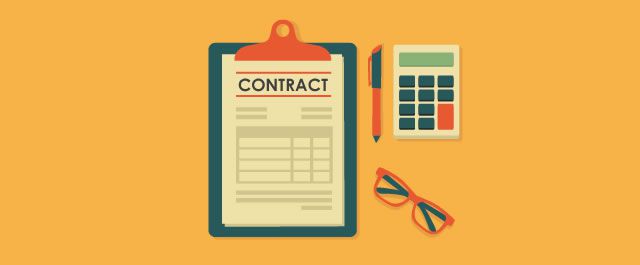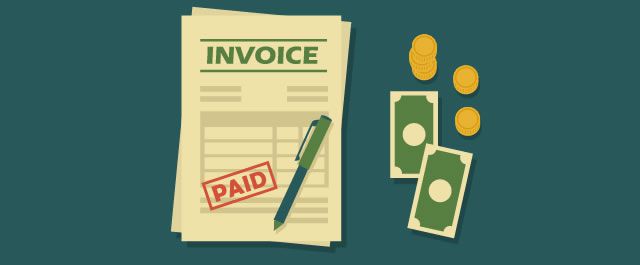If you’re freelance finances are not in the shape they should be, here’s some tips that’ll help you get your them back on the right track.
Freelancing can be pretty unforgiving. Lacking the cushion of a regular paycheque, financially things can be fraught and without the adequate expertise you can be left perpetually worrying about money. During my freelance time I was curmudgeonly for the most part, constantly concerned about cash flow (or a lack-thereof).
Why on earth then, should you listen to my financial advice? Well, for the past twelve months or so I’ve been working in-house at accountancy firm surrounded by people who make a living out of managing finances. As such, I’m a little more knowledgeable on the financial front and a little shrewder when it comes to managing your funds.
Firstly, free yourself of the bad clients
Bad clients are bad for business, the worst wreaking havoc on your finances through late or non-payment – so try to sift them out from the start.
Consider asking for a deposit before you start work, especially if the project’s a big one and you’re likely to be investing a lot of time. Around the 25% mark is a reasonable enough figure, which, if paid, should mean that the client’s a decent one and likely to cough up later on.
Don’t be afraid to ask for payment upfront either, offering a discount to those who pay up from the outset. Remember, there’s nothing in place to say that you must stick to conventional payment terms. If needs be, you can shift these around to fit your financial needs.
Contract up
Going into a job with a contract in place can make it easier to track cash down, should things go a little wrong. Providing you with some legal teeth, it’s essential to draw one up before every job.

Image Source: Quotation via Shutterstock.
Clueless about what to include? Freelance Advisor – the sister site of my paymasters – have some sample contacts here. They’re a tad UK specific, but for those of you based elsewhere they’ll at least give you a rough idea about what to add.
Know your rights and fight
Elsewhere, getting up to speed with your legalese can help financially, some knowledge here helping you claim back cash, should it go astray.
Here in the UK for instance the Late Payments Directive was recently introduced, giving freelancers more power to punish the late payers. As such, you can incorporate these legal rights into your contracts and ease the chance of unscrupulous clients clawing away your cash.
Border to border, the depth of protection offered to freelancers differs, so wherever you’re based get to know your rights and be willing to battle the bad guys to get back that cash.
Invoice, as soon as the work’s done
Getting invoices out there rapidly you’ll be reducing the lead-time in getting paid, thus improving your cash flow situation.
That said, don’t shoot them off without the appropriate care and attention – a mistake can give a client the right to query or delay payment. Always ensure that they’re suitably clear and detailed, reflecting the terms of your contract.

Image Source: Invoice via Shutterstock.
Unclear on what to include? Feel free to peruse some invoice samples here.
Brush up on the tax facts
Tax is taxing (and pretty boring too) nonetheless, just like learning your legalese getting to grips with tax is essential financially. Miss a tax return deadline and you’ll face penalties as a result, more money divulged out of your business when it really needn’t be.
Thankfully it’s relatively easy to learn your tax responsibilities nowadays, national collectors like the IRS increasingly shift their services online and offer ‘tax workshops’ and ‘webinars’ to those who need a helping hand.
Acquire an accountant
Now, I would say this but the fact is an accountant’s expertise can be invaluable financially.
They’re clued up on the best ways to run a tax efficient business and can make sure you get them tax returns filed on time, including all the right information. Although involving a bit of an outlay, it’s worthwhile having one if you’ve got the dough as they can save you both money and hassle in the long-term.
File everything
Whilst an accountant can cure some of your some financial woes, without a bit of work from you they’ll struggle to do their job.
To get the best out of them you’ll need to develop a stringent system where all your paperwork is concerned. Keep all your financial documents in a disorganised draw or shoebox and you’ll be left flailing around, struggling to find those important documents when tax return time comes.

With that in mind, ensure you establish a filing system of some description – perhaps dividing it up into different sections for invoices, bank statements and the like. This’ll spare you headaches when it comes to compliance.
Get techy
As a designer, I’d wager that you’re no technophobe (heck, you’re reading this online aren’t you) so consider getting techy with the financial side of things, too.
There’s an abundance of apps that can help freelancers with their financials, Mint, My Price App and Receipt Bank amongst some of the apps freelancers I know swear by. Based upon their glowing reviews it’s probably worth giving them a go, as they’ll probably make things tidier on the financial front.
Be boring and budget
Like tax, budgeting is intrinsically boring. For financially stability it’s essential though – learn from my recklessness here.
September 2008, I snared my first big freelance paycheque. Ibiza closing parties on the horizon, I got a little lavish with my new-found wealth and quickly set off to Spain to indulge in some clubbing, Coronas and general carnage.

Image Source: Saving via Shutterstock.
Sinking my first beer in the airport I saw a news report saying that one big bank had collapsed… then another…. then another. Frantic news reporters were fretting on the TV about the repercussions and then and there I knew I should have put some of that paycheque aside. Indeed, when I got back work became a lot harder to come by.
In short, build a budget and stick to it. You never know what’s around the corner, either economically or personally.
Related Topics
Top